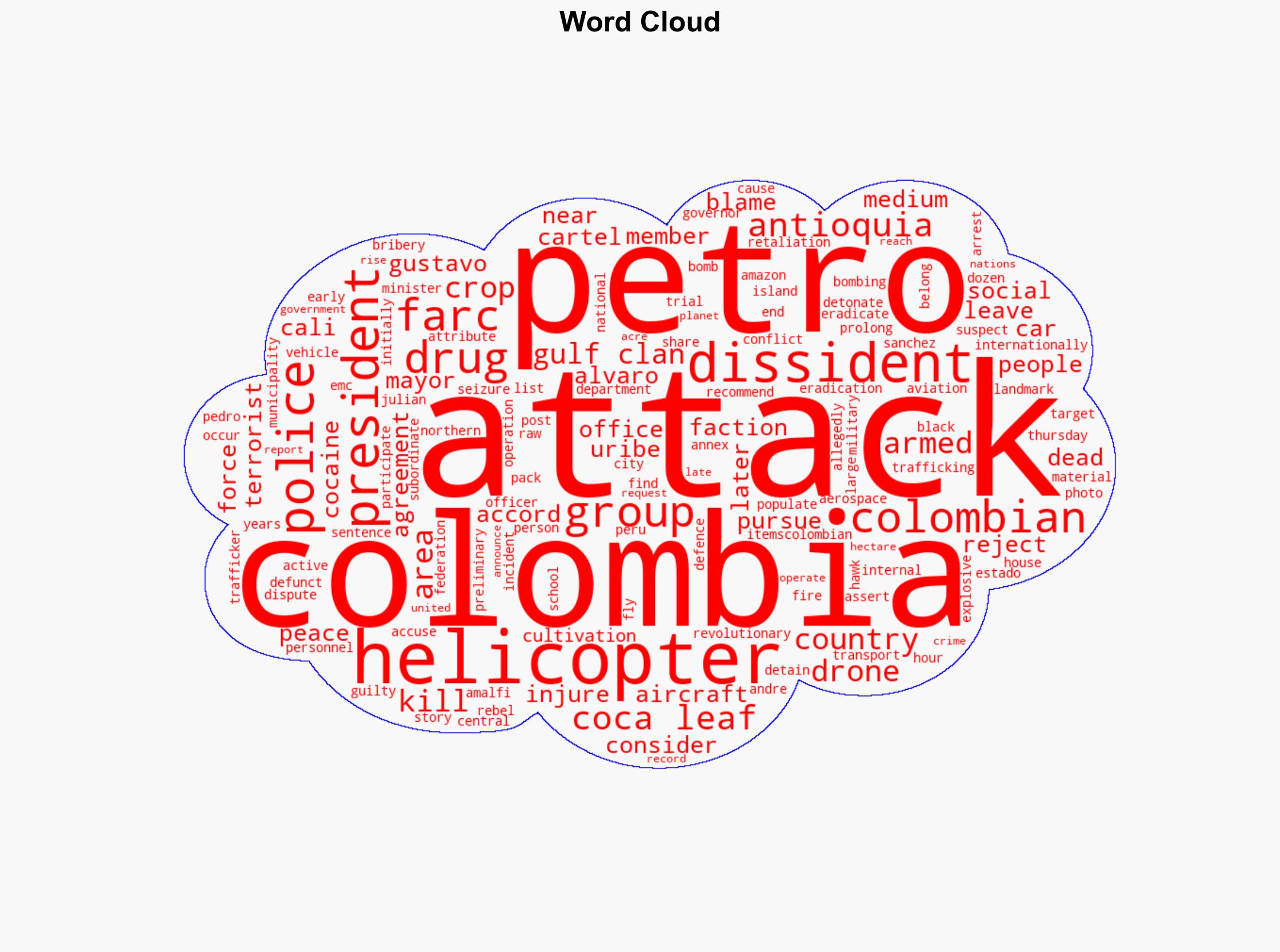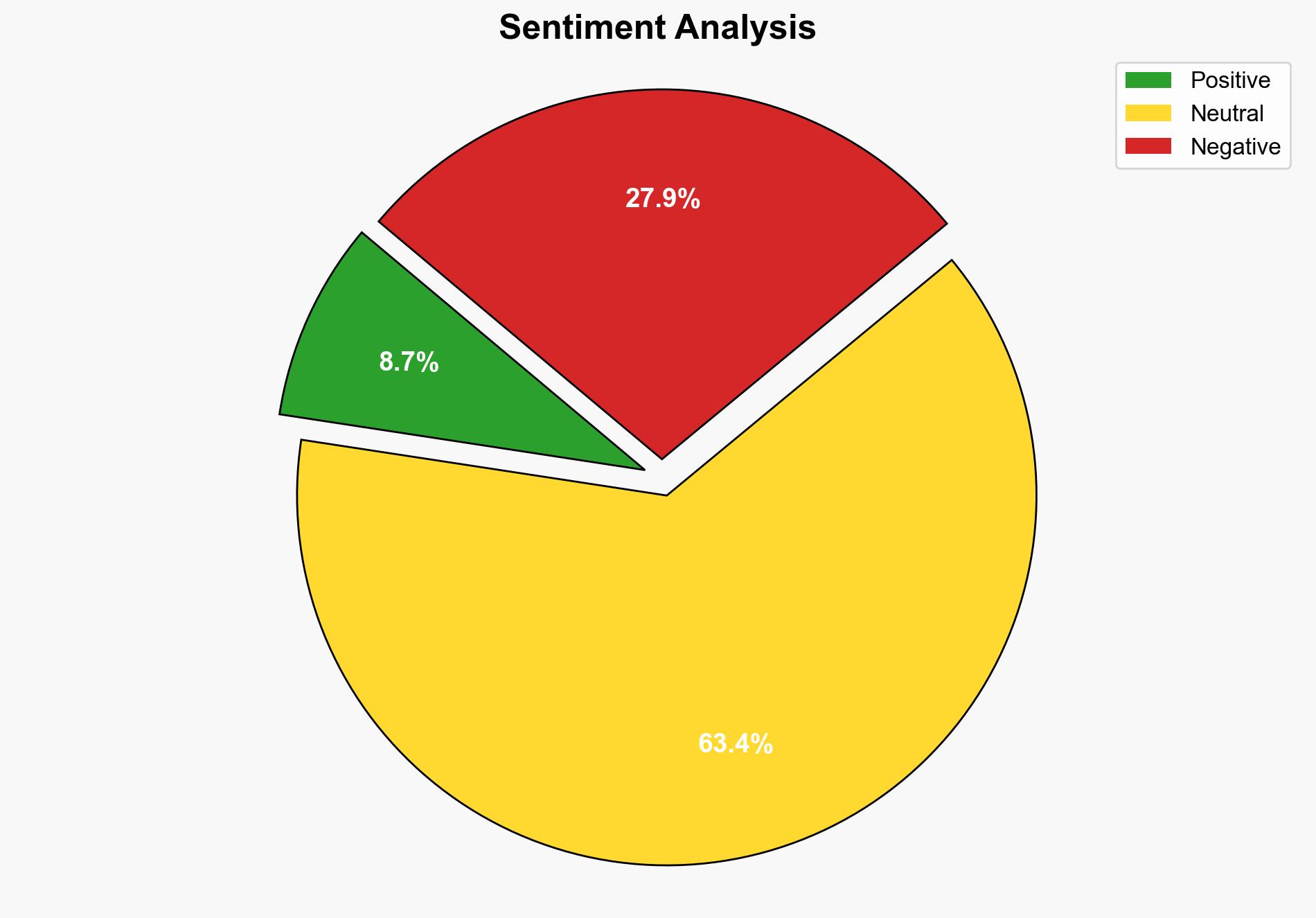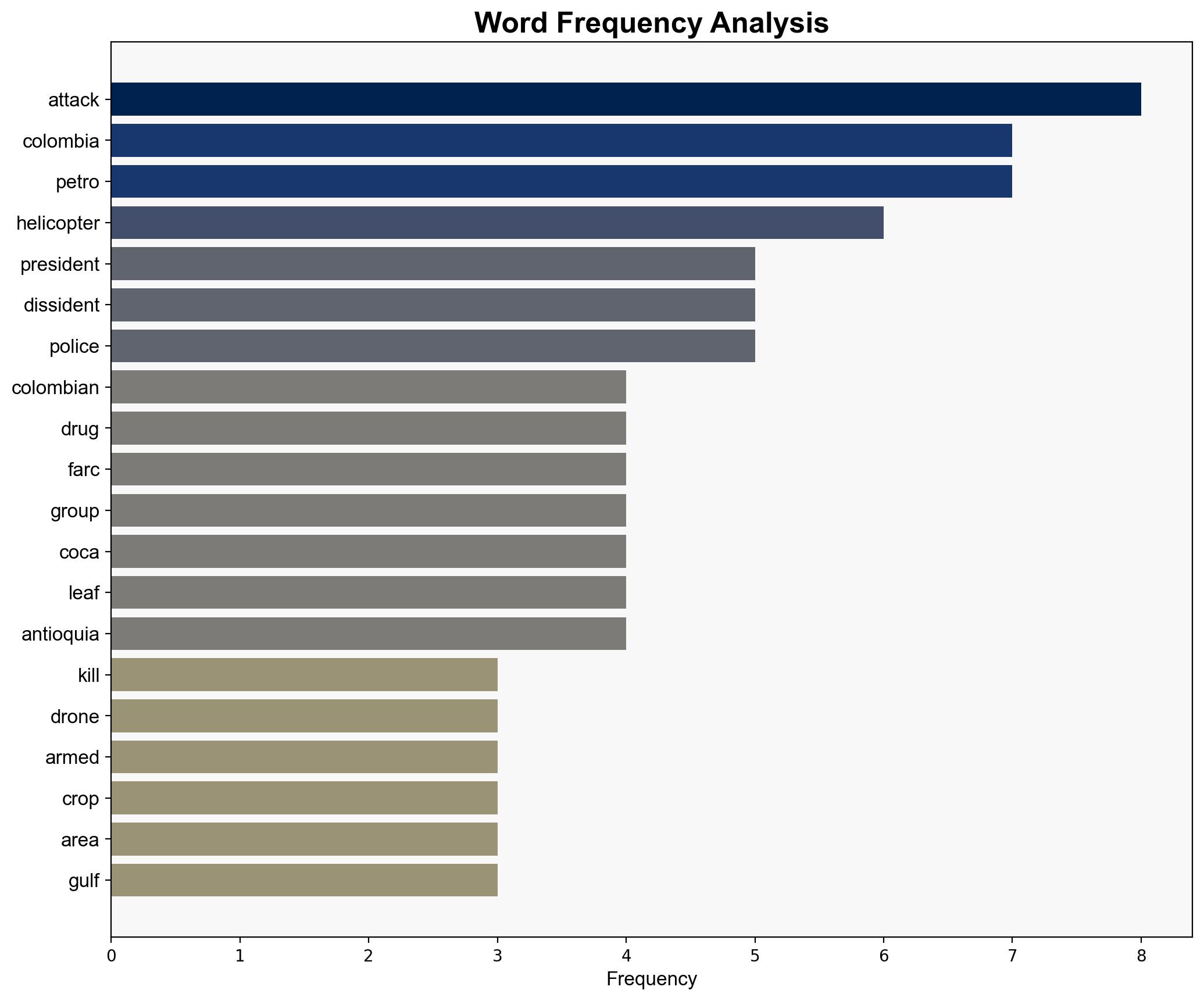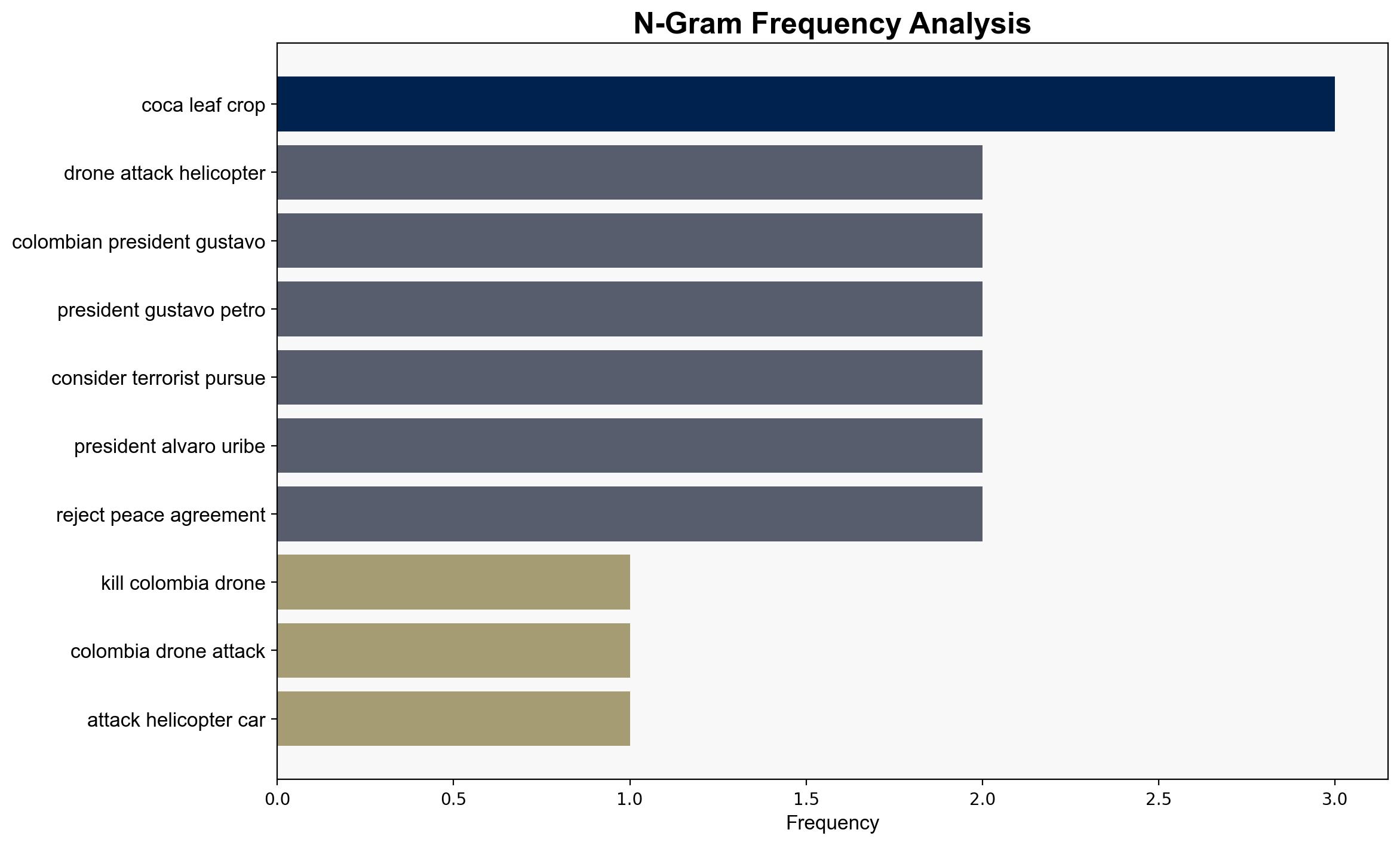At least 18 killed in Colombia in drone attack on helicopter car bombing – Al Jazeera English
Published on: 2025-08-22
Intelligence Report: At least 18 killed in Colombia in drone attack on helicopter car bombing – Al Jazeera English
1. BLUF (Bottom Line Up Front)
The most supported hypothesis is that the attack was orchestrated by dissident factions of the FARC, rejecting the peace agreement and retaliating against government actions targeting drug trafficking operations. Confidence level: Moderate. Recommended action: Strengthen intelligence-sharing and counter-terrorism efforts with regional partners to preempt further attacks.
2. Competing Hypotheses
1. **Hypothesis A**: The attack was conducted by FARC dissidents as a direct response to ongoing government operations against coca cultivation and drug trafficking, aiming to destabilize the region and assert control.
2. **Hypothesis B**: The attack was a coordinated effort by the Gulf Clan, leveraging FARC dissidents as proxies to retaliate against recent drug seizures and to divert attention from their operations.
Using Analysis of Competing Hypotheses (ACH 2.0), Hypothesis A is better supported due to the direct attribution by President Petro and the historical context of FARC dissidents rejecting the peace agreement. Hypothesis B lacks direct evidence and relies on speculative connections between the Gulf Clan and FARC dissidents.
3. Key Assumptions and Red Flags
– **Assumptions**: It is assumed that FARC dissidents have the capability and intent to conduct such sophisticated attacks. The Gulf Clan’s involvement is assumed based on their operational presence in the region.
– **Red Flags**: Conflicting attributions by President Petro, initially blaming the Gulf Clan, suggest potential misinformation or strategic misdirection. Lack of detailed forensic evidence on the drone and explosives raises questions about attribution accuracy.
4. Implications and Strategic Risks
The attack signals a potential escalation in violence from FARC dissidents, risking destabilization in key regions like Antioquia. This could lead to increased military engagement and strain on government resources. Economically, sustained violence may deter foreign investment and disrupt local economies. Geopolitically, it could strain Colombia’s relations with neighboring countries if cross-border operations are implicated.
5. Recommendations and Outlook
- Enhance surveillance and intelligence-gathering capabilities in regions with high FARC dissident activity.
- Foster regional cooperation to address cross-border drug trafficking and insurgency threats.
- Scenario Projections:
- Best: Successful dismantling of dissident networks reduces violence.
- Worst: Escalation leads to widespread instability and regional conflict.
- Most Likely: Continued sporadic attacks with gradual government containment efforts.
6. Key Individuals and Entities
– Gustavo Petro: Colombian President attributing the attack to FARC dissidents.
– Alvaro Uribe: Mentioned in context but unrelated to the attack.
– Andre Julian: Antioquia Governor commenting on the incident.
– Pedro Sanchez: Colombian Defense Minister providing preliminary attack assessments.
7. Thematic Tags
national security threats, counter-terrorism, regional focus, drug trafficking




